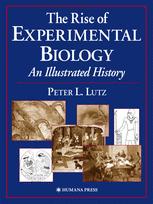

Most ebook files are in PDF format, so you can easily read them using various software such as Foxit Reader or directly on the Google Chrome browser.
Some ebook files are released by publishers in other formats such as .awz, .mobi, .epub, .fb2, etc. You may need to install specific software to read these formats on mobile/PC, such as Calibre.
Please read the tutorial at this link: https://ebookbell.com/faq
We offer FREE conversion to the popular formats you request; however, this may take some time. Therefore, right after payment, please email us, and we will try to provide the service as quickly as possible.
For some exceptional file formats or broken links (if any), please refrain from opening any disputes. Instead, email us first, and we will try to assist within a maximum of 6 hours.
EbookBell Team

5.0
68 reviewsFor more than three thousand years our physiological and medical knowledge has developed from the simple reading of entrails to the computerized decoding of the human genome. In The Rise of Experimental Biology: An Illustrated History, Peter Lutz, PhD, brilliantly traverses the major milestones along the evolutionary path of biomedicine from earliest recorded times to the dawn of the 20th century. With an engaging narrative that will have you turning "just one more page" well into the night, this book revealingly demonstrates just how the modern scientific method has been shaped by the past. Along the way the reader is treated to some delightfully entertaining anecdotes and a treasure trove of illustrations that chronicle the tortuous history of biomedical developments, ranging from the bizarre and amusing to the downright macabre. The reader will also be introduced to the major ideas shaping contemporary experimental biology, as well as their social context, and also learn how advances in their understanding have occasionally been improperly used to satisfy momentary social or political needs.
Accessibly written and richly pictorial, The Rise of Experimental Biology: An Illustrated History will entertain as well as inform a broad audience of not only experimental biologists, medical scientists, and natural philosophers, but also everyone interested in history and medicine today.